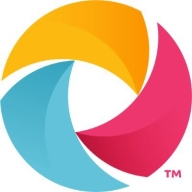

Xamarin Platform and Appium are competing in the app development and testing landscape. Xamarin appears to have the upper hand due to its robust development environment and better integration with various tools, while Appium offers greater flexibility with testing frameworks.
Features: Xamarin Platform allows building native applications using a single codebase, integrating seamlessly with development tools and enhancing developer productivity. The Xamarin.UI test automation library enables testing across Android and iOS applications without language concerns. Xamarin.Forms supports creating single UI solutions for multiple platforms. Appium, as an open-source tool, supports automation for native, hybrid, and mobile web apps across Android and iOS without modifying the source code. It employs Selenium-based protocols, providing flexibility in language choice like Java and C#. Appium Inspector assists in element identification across applications.
Room for Improvement: Xamarin could improve by reducing app size and memory footprint, enhancing third-party library support, and better PDF module integration. Appium might benefit from structured support options, improving parallel execution for iOS devices, and enhancing smart reporting dashboard capabilities.
Ease of Deployment and Customer Service: Appium's open-source nature ensures easy deployment across platforms but lacks direct customer support, relying heavily on community resources. Xamarin provides comprehensive documentation and professional support, making deployment smoother and aiding quicker resolution.
Pricing and ROI: Xamarin generally involves higher setup costs with licensing fees, potentially impacting initial ROI but offering returns through reduced development cycles. Appium's open-source model presents lower initial costs, presenting immediate savings, but potential hidden costs may arise from community-based support and integration efforts over time.
| Product | Market Share (%) |
|---|---|
| Xamarin Platform | 6.3% |
| Appium | 3.2% |
| Other | 90.5% |

| Company Size | Count |
|---|---|
| Small Business | 6 |
| Midsize Enterprise | 6 |
| Large Enterprise | 19 |
| Company Size | Count |
|---|---|
| Small Business | 18 |
| Midsize Enterprise | 5 |
| Large Enterprise | 14 |
Appium is an open-source mobile application development tool that is designed to give users complete control of their application development process. It enables them to optimize the development process when the need calls for it, and create the applications that they want in the most efficient manner they can.
Appium Benefits
Some of the benefits that come from using Appium include:
Appium Features
When users choose to employ Appium’s mobile development solution, they gain access to many different capabilities. These features include:
Reviews from Real Users
Appium is a solution that has a great deal to offer its users. It is a very complete mobile development solution that gives users the capabilities that they need to design their mobile applications with the greatest level of ease possible. Users can scale their application scripts to meet their needs. Additionally, developers can automate testing protocols, which reduces the amount of time and other resources that need to be devoted to the testing process. These two features make Appium a leader in the field of mobile application development.
Jayanta K., automation and nft manager at a computer software company, writes, “The interface for mobile automation is helpful for scripting and execution. It's scalable and there are many testers who would like to automate. In terms of scripting, scalability is very good.”
The head of solutions delivery (systems) at a wellness & fitness company writes, “Obviously, because of automation, it reduces manual testing efforts.”
Xamarin is an open-source platform for developing modern and performant applications for iOS, Android, and Windows using.NET. Xamarin is an abstraction layer that manages how shared code is communicated to the platform's underlying code. Xamarin is for developers with the two following goals:
Cross-platform sharing of code, tests, and business logic.
Writing cross-platform apps in C# with Visual Studio.
Xamarin allows developers to share an average of 90% of their program across platforms. This enables programmers to achieve native performance, look, and feel on each platform while writing all of their business logic in a single language (or reusing existing application code).
Xamarin applications can be created on a PC or a Mac and compiled into native application packages, such as an .apk file for Android or an .ipa file for iOS.
Xamarin Platform Features
Xamarin Platform has many valuable key features. Some of the most useful ones include:
Xamarin Platform Benefits
There are many benefits to implementing the Xamarin Platform. Some of the biggest advantages the solution offers include:
We monitor all Mobile Development Platforms reviews to prevent fraudulent reviews and keep review quality high. We do not post reviews by company employees or direct competitors. We validate each review for authenticity via cross-reference with LinkedIn, and personal follow-up with the reviewer when necessary.